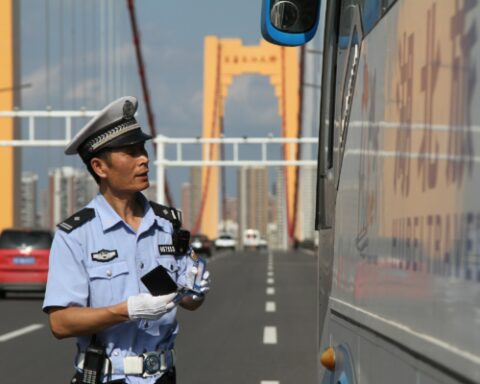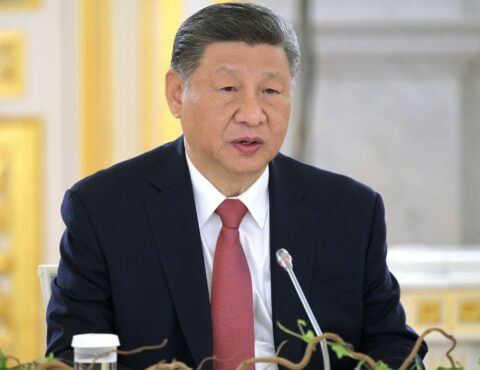Beijing authorities are reportedly intensifying pressure on neighboring regions to curb cyber frauds following the prominent abduction of a young Chinese actor who claims he was transported into a criminal territory in Myanmar.
Regions affected by conflict Myanmar and many Southeast Asian nations have emerged as refuges for extensive scam operations, wherein hundreds of thousands of individuals are coerced into defrauding victims in the U.S., China, and beyond, amounting to billions of dollars.
Many fraudsters, who have also been deceived and effectively subjugated by criminal organizations, frequently entrap victims in fraudulent relationships and get them to invest in fictitious ventures.
This week, the Chinese government convened an atypical crisis meeting in the southern city of Kunming with officials from neighboring countries.
Officials from Myanmar, Thailand, Laos, Cambodia, Vietnam, and China committed to apprehending ringleaders, dismantling alleged scam operations, and liberating victims of human trafficking, as reported by Chinese state television.
In recent years, China has apprehended tens of thousands of individuals accused of participating in scams, including during raids on scam operations conducted by Chinese law enforcement overseas.
Beijing has faced criticism for insufficient action to halt the practice, as numerous purported criminal lords behind the schemes are Chinese.
China’s recent actions against the expanding scam business were instigated by the abduction of a young film and television star who claims he was enticed to Thailand for a filming project.
Wang Xing vanished from a town on the Thailand-Myanmar border on January 3 and was rescued four days later, subsequent to an exceptionally vigorous public pressure campaign on China’s tightly regulated domestic news and social media platforms.
China’s Ministry of Public Security subsequently announced that officials had uncovered a criminal organization that lured models, actors, and film crews to Thailand with fraudulent work offers, thereafter selling them to scam operations.
According to the report, twelve individuals have been apprehended in relation to the controversy.
The case resonated in China, where censorship typically restricts public expression.
The news of Wang’s abduction rapidly disseminated following a request for assistance from his girlfriend, referred to by her moniker Jiajia, on the Chinese social media platform Weibo.
Jiajia stated that Wang had journeyed to Bangkok for a film production following a successful online audition.
Upon arriving, he entered a car organized by the recruiter. She stated that he sensed something was amiss.
According to Jiajia, Wang provided her with a map indicating his whereabouts, and they maintained communication during the approximately seven-hour journey.
Upon losing communication, she promptly notified Chinese authorities.
Jiajia stated that she resorted to social media after her prolonged attempts through formal channels proved futile, naming prominent personalities in her post.
Within a day, Wang’s disappearance became a trending topic on Weibo, with associated posts receiving over 400 million views. The narrative was disseminated by state media and local radio stations.
Official estimates indicate that more than 53,000 Chinese people, accused of cybercrimes and frauds, have been deported from Myanmar to China since the commencement of the raids.
[READ MORE: Head of Israel’s Military Steps Down Over Failure to Protect Country From Oct. 7th Attack]









